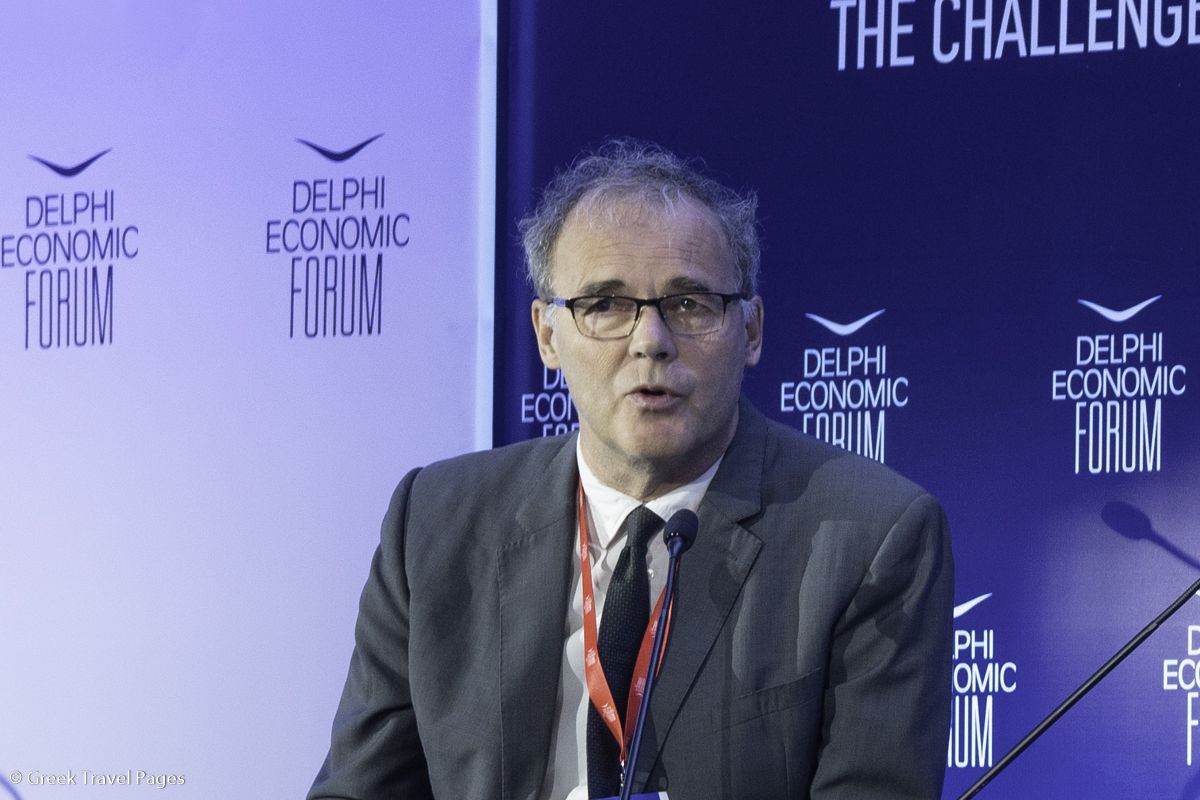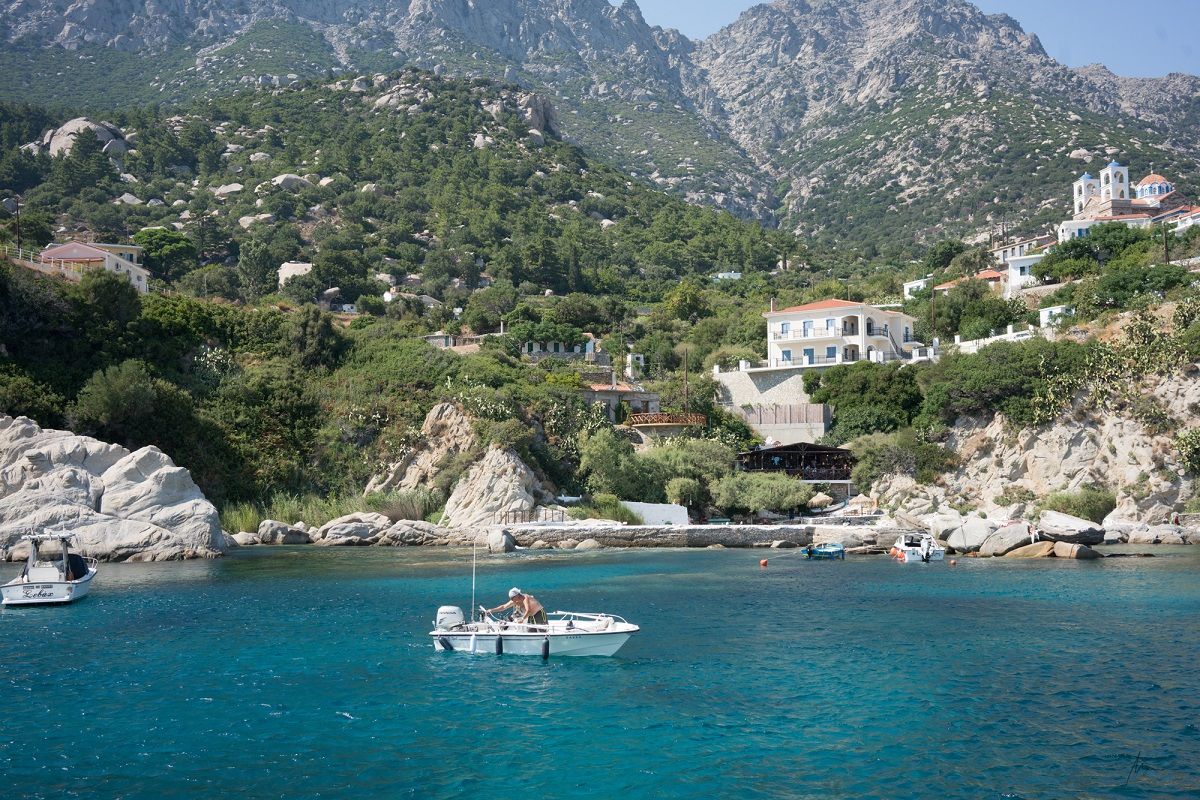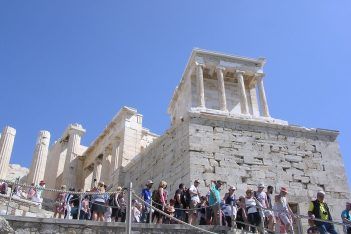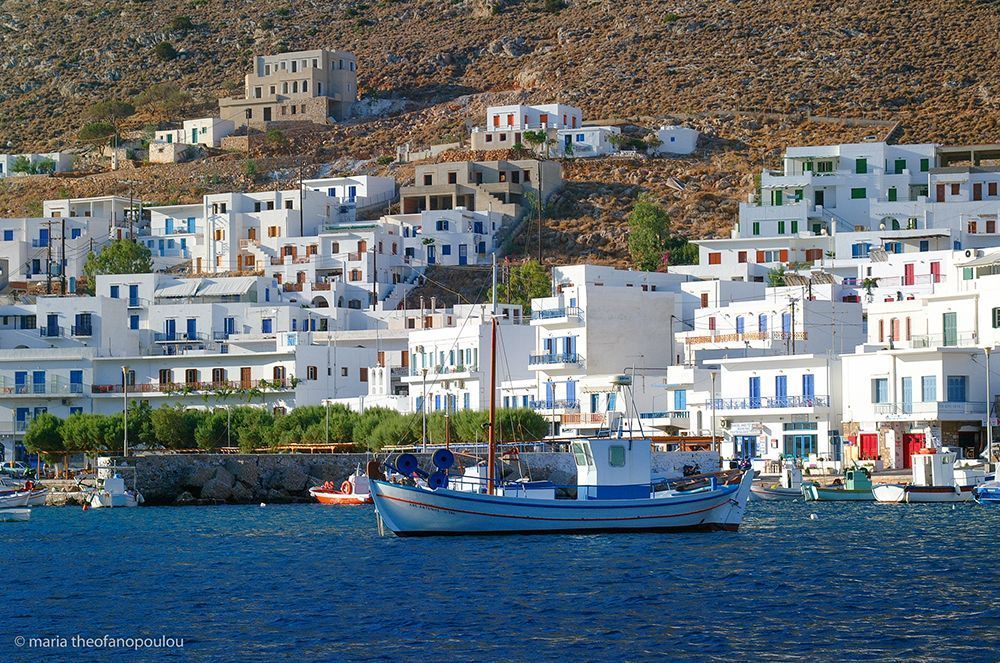Interview – Alain Dupeyras: ‘Sustainable Long-term Practices Vital for Greek Tourism’

Alain Dupeyras, Head of Regional Development and Tourism Division at the Organization for Economic Co-operation and Development (OECD). Photo: GTP
Tourism and sustainability should go hand in hand, in order for Greece to achieve economic growth and continue to be among the most popular tourism destinations around the world.
 According to Alain Dupeyras, Head of Regional Development and Tourism Division at the Organization for Economic Co-operation and Development (OECD), tourism has been a driving force in Greece’s efforts to achieve economic recovery, but in order to continue its upward trend, it has to adopt sustainable long-term practices.
According to Alain Dupeyras, Head of Regional Development and Tourism Division at the Organization for Economic Co-operation and Development (OECD), tourism has been a driving force in Greece’s efforts to achieve economic recovery, but in order to continue its upward trend, it has to adopt sustainable long-term practices.
OECD has been closely monitoring Greece’s efforts to exit the crisis, also offering its knowhow on issues, related to tourism and its sustainable development. Furthermore, the organization’s tourism committee offers analyses and proposes policies and structural changes that support the development of domestic and international tourism.
GTP Headlines caught up with Alain Dupeyras during his visit to Greece for the Delphi Economic Forum 2019*, and had the chance to discuss the ways Greece can achieve further growth through sustainable tourism.
- GTP Headlines: Greece has been working closely with the tourism committee of the OECD to promote sustainable practices in tourism. Please tell a few words about this collaboration.
Alain Dupeyras: OECD is probably the oldest international organization working on issues related to tourism and Greece is among its most active members.
 A large part of what we do in OECD is about promoting good policy practices and defining what works and doesn’t work in the efforts for tourism development.
A large part of what we do in OECD is about promoting good policy practices and defining what works and doesn’t work in the efforts for tourism development.
Meanwhile, Greece’s former minister of tourism, Elena Kountoura, worked closely with OECD and other international organizations because she understood that Greece can benefit from the good practices currently implemented.
Within this framework, Greece chaired the October 2018 OECD High Level Tourism Committee Meeting in Paris, where we agreed on a number of important actions aiming to promote tourism development in a long-term sustainable way.
“Tourism is among the sectors that support the recovery of the Greek economy.” – Alain Dupeyras
- GTP Headlines: OECD has been closely monitoring Greece’s economic development. In your opinion, which are the main obstacles currently affecting tourism growth?
Alain Dupeyras: The first thing I would like to say is that tourism is among the sectors that support the recovery of the Greek economy. It is also one of the few sectors actually playing a role and generating additional economic growth. However, I think that the main challenge is to increase the added value of tourism.
Greek tourism has a lot of potential that has not been fulfilled so far. This takes us to the issue of Greece’s current status and the barriers that affect economic growth: Sometimes these have to do with taxation, and we all know that a stable taxation system has often to do with regulation. There is still a lot of work to be done there.
Tourism growth also has to do with strategic planning, which again needs a lot of work.
Furthermore, we should mention that Greece has been discussing a new law on thematic tourism which is considered very important, whether it involves small tourism businesses, boutique hotels or different types of small-scale investments that are better fitted for small islands.
- GTP Headlines: How do you see tourism trends shifting in the Mediterranean this year, and how will changes affect Greece and its tourism competitors in the region?
Alain Dupeyras: Greece’s location is very unique: It is in the eastern side of Europe, closer to important economies that are rapidly growing, compared to other countries such as Germany and France.
What is more, in order for tourism to succeed we need political stability and safety. However, there are countries in the Mediterranean region that are still far from that level.
Greece, I believe, has a lot of potential to attract tourism from Turkey and South Mediterranean countries, because it is currently seen as a very safe place and has shown a positive image, not only to the region but to the whole world.
Furthermore, its gastronomy and culture are very popular among travelers, therefore I am very optimistic about its tourism development.
- GTP Headlines: Do you feel optimistic about the development of international tourism as well?
Alain Dupeyras: There is a lot of evidence that the sector will continue to grow in the long term by 2-4 percent depending on the region.
The main challenge for all OECD economies – including Greece – is to get the best of this tourism growth. Which means that Greece, in particular, needs to focus on the added value of the tourism sector. As a result, its tourism product, promotion schemes and people must be prepared to support a higher added value in the tourism economy.
You see, we cannot just build a hotel in the middle of nowhere. When we develop a hotel, we must make sure that its guests will have a pleasant stay, the destination has plenty of leisure or other options for travelers, and this requires a very close collaboration between core tourism products and the environment.
“I am very optimistic about Greece’s tourism development.” – Alain Dupeyras
- GTP Headlines: Are you concerned about the effect of Brexit on traveling trends this season?
Alain Dupeyras: We still do not have enough information on how tourism will be affected by the Brexit. However, it is very important that all the economies closely engaged to the British economy are prepared. For example, if the British economy is heavily affected by the Brexit – which is an option – this will have a tremendous impact on the capacity of British people to travel. As I said, we still have little clarity on the issue.
- GTP Headlines: There has been a lot discussion about the interconnection of tourism and sustainability. Can sustainable tourism practices drive growth?
Alain Dupeyras: Yes, I believe that sustainability is the driver of competitiveness. It is actually the core of competitiveness and inclusiveness.
 If we cannot put these two important pillars at the epicenter of the tourism economy we will not be able to reach success in the long term.
If we cannot put these two important pillars at the epicenter of the tourism economy we will not be able to reach success in the long term.
It is very important in tourism to think long-term. Some of the sector’s most significant mistakes – especially in Mediterranean countries – have been made because some investors failed to think long-term.
- GTP Headlines: What are some of the sustainability issues that Greece needs to improve;
Alain Dupeyras: I think there are several. Greece, for example, has many quality agricultural products. The country must ensure that its tourism economy is very well connected to all the quality products that are produced in Greece.
On the other hand, environmental sustainability is everything. It is critical – especially for fragile environments – to ensure that all tourism businesses are fully sustainable.
Energy conservation, water management, mobility are all critical for tourism development, and also enrich the tourism experience of travelers.
There are currently many EU funding programs that support environmental sustainability but it seems that a number of Greek municipalities and regions are unable to tap into these programs.
“Sustainability is the driver of competitiveness.” – Alain Dupeyras
- GTP Headlines: How can tourism benefit local communities in the long term?
Alain Dupeyras: I believe that it is very important for tourism to support local communities, particularly in Greece, given the country’s small geographical boundaries.
Let me give you one example related to mobility and transport: If we want to develop tourism beyond popular destinations such as Santorini, Crete and Rhodes to smaller islands, we need to ensure better access. Better access will also benefit the residents of small islands, who currently need many hours to reach a large city and thus have limited access to health, education and other significant services.
So, the discussion on tourism development should also involve regional and local economic development. Large-scale investments may be necessary, but in many cases, I believe that this effort could involve small-scale investments, that would make the difference and be tailored to the needs of fragile destinations.
*Alain Dupeyras participated in a panel discussion titled, “Tourism policy for sustainable growth”, during the Delphi Economic Forum 2019, which was held during February 28 – March 3, in Delphi, Central Greece.







